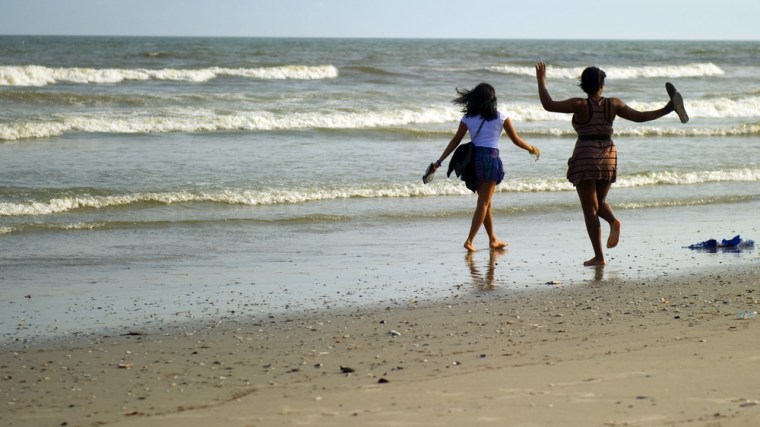The snow still may be piled high across much of the country, but hardy souls are starting to plan spring and summer vacations.
That means families have an easy opportunity to help their kids become financially savvy, by involving children in planning some of the spending aspects of the getaway.
Vacation planning has special advantages as a vehicle for teaching money smarts, according to Stuart Ritter, a senior financial planner at T. Rowe Price. "Parents can try to engage them in college planning and other things, but vacations are very real, very immediate things that they are interested in," he said.
Another advantage of using vacations to learn about money is that there are ways to involve kids with different levels of financial knowledge, Ritter said. Older children may participate in discussions of why a camping trip makes sense when college savings are important, and younger children can sort out small spending decisions.
"It can be like 'everybody gets $15 to spend on souvenirs,' or 'we can either eat out for dinner or eat out for breakfast and lunch,' " he said.
There should be plenty of leisure travel taking place this year: the Traveler Sentiment Index, published by the U.S. Travel Association and MMGY Global, is almost back to the heights of 2007, and an American Express survey found that 69 percent of Americans planned a summer vacation in 2013, up from 59 percent in 2012.
Laura Levine, president of the Jump$tart Coalition for Personal Financial Literacy, says vacations are a great opportunity to teach kids how to budget — on many levels.
"It's a closed end sort of activity with a definite start and finish," she said, so any less–than–great decisions or choices have limited ramifications.
One way to teach budgeting through travel, Levine says, is to get the entire family involved in the trip planning — deciding how elaborate a trip will be, and what that will mean for other things like college savings or holiday gifts.
Laura Landa and her family faced just such a decision last year. "We agreed as a family to have a 'smaller' Christmas this past year so that we could go to San Francisco to see the 49ers play their final home game at Candlestick Park," recalled Landa, who lives in Claremont, Calif. "The game was incredible and both kids said that they will never ever forget the excitement of that game or the fact that they were there."
Landa added that when they talk about what makes their family special, the kids often point to their vacations, partly because everyone helps shape them.
Levine says parents can also boost their kids' financial literacy by giving them some vacation money, and the freedom to decide what to do with it. On a vacation, kids can make money mistakes and the effects are not catastrophic."If they blow it all the first day, you can let them suffer a little bit," and have a conversation about other choices they could have made, Levine said. But "your kids still get to eat and go on the activities."
Whatever the money lessons being imparted, Levine says the important thing is for parents to stick to their guns. If a child fritters away a travel allowance, parents should avoid simply refilling their pockets. And if a child doesn't meet an agreed–upon financial goal, there should be consequences.
Tracie Shroyer, a mother in Lino Lakes, Minn., faced this challenge with her three children. They regularly receive large allowances and are responsible for covering many of their major expenses.
One year, Shroyer and her husband told the kids that if they saved up for their plane tickets, the family would take a winter trip to the Southwest. But when the time came to buy the tickets, their daughter had not saved the money.
"We were aghast! This was our huge teachable moment. I mean, we'd worked this all out," Shroyer said in an email. But the parents stuck to their guns, and Shroyer's boys traveled with her while her daughter stayed home with Dad. Shroyer says her daughter is now a phenomenal saver. Levine says calculating restaurant tips can be another travel teaching tool. It's an easy opportunity for a math lesson, it teaches children about respecting others' work and evaluating the value of what they are buying, and it can provide a nice reality check. "Kids sometimes don't spend a lot of time looking at the prices on the menu," she said. "If they are figuring the tip, that can be eye-opening for them."
One key point to remember about teaching money smarts around a vacation is to do it in little increments, experts say. Kids are much more likely to retain the information if it is conveyed at a time when it is meaningful to them.
"If you do it in bite-sized chunks, it's easier for you to have the conversation and for them to engage in the decision-making," Ritter said. "Like most other things, it's not one big talk that we wait until they're 17 and we sit them down for the eye rolls in the living room."
